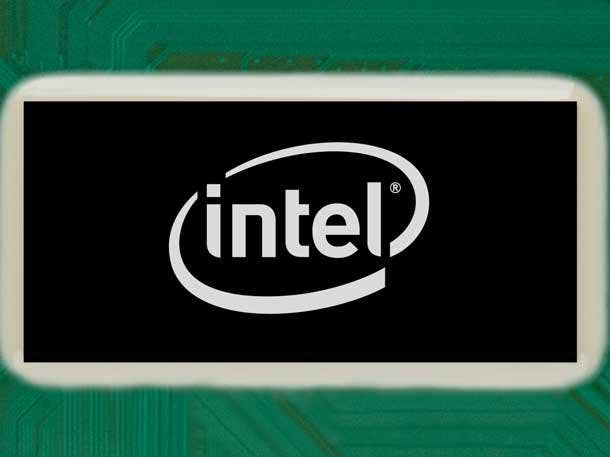Intel Prunes Xeon Cooper Lake Plans To Focus On Ice Lake CPUs
'It could be that customers would have looked at that and said, we're just going to leapfrog this family and just go straight to Ice Lake,' one Intel partner says of the chipmaker's decision to pare down the number of options in its forthcoming Xeon Cooper Lake processor lineup.

Intel has confirmed reports that it has pruned plans for its upcoming Xeon Cooper Lake processors by reducing the number of processors it plans to launch in the product line.
The Santa Clara, Calif.-based company said while it plans to still launch new Xeon processors under the Cooper Lake code name, it will no longer release them for one- and two-socket servers and will now only focus on processors for four- and eight-socket servers.
[Related: Intel's Lisa Spelman: Why Optane DC Is Winning Over Customers]
The semiconductor giant said the Cooper Lake decision was made in response to market demand as well as the "continued success" of Intel's second-generation Xeon Scalable processors, which were recently expanded with new Cascade Lake Refresh parts, and demand for its upcoming 10-nanometer Ice Lake server processors that are due to come out alter this year.
"Intel constantly evaluates our product roadmaps to ensure we are positioned to deliver the best silicon portfolio for data center platforms," an Intel spokesperson said in a statement to CRN. "Given the continued success of our recent expansion of 2nd Generation Xeon Scalable products and customer demand for our upcoming 10nm Ice Lake processors, we have decided to narrow the delivery of our Cooper Lake products that best meets our market demand."
The change in Intel's Xeon server roadmap comes as the company's rival, AMD, is forging ahead with plans to ship its second line of EPYC processors, code-named Milan, that are based on a 7nm architecture later this year. AMD's 7nm Zen 2 architecture, along with its chiplet design approach, has allowed the company to claim price-performance advantages over Intel's 14nm Xeon processors.
Industry publications SemiAccurate and ServeTheHome first reported on Intel's change in plans for Cooper Lake, which Intel initially disclosed at its Data-Centric Innovation Summit in 2018.
Intel previously planned to release Cooper Lake processors across two different server platforms, Whitley for one- and two-socket processors and Cedar Island for four and eight-socket processors, according to the reports. However, the company decided to switch gears to only support Cooper Lake for Cedar Island as it prepares 10nm Ice Lake processors for the Whitley platform.
The chipmaker said Cooper Lake processors for the Cedar Island platform are still on track for the first half of this year while Ice Lake processors will be delivered later this year. Cooper Lake will be based on an advanced version of Intel's 14nm process technology that has been used for several Xeon generations while Ice Lake will be based on the 10nm process technology that had been delayed for years. Cooper Lake, which will be part of a next-generation Xeon Scalable lineup, will feature up to 56 cores and a boost in artificial intelligence and training performance.
Kent Tibbils, vice president of marketing at ASI, a Fremont, Calif.-based Intel distributor, told CRN that with the decision to cancel one- and two-socket versions of the upcoming Cooper Lake processors, Cooper Lake will likely not be a big opportunity for the channel since four- and eight-sockets servers don't see a lot of volume with channel partners.
"Clearly the one- and two-socket processors are where most of the volume is at, and that's kind of the sweet spot for the majority of our customers, especially with all the core counts and everything going up so high on the one- and two-socket solutions," he said.
Intel told ServeTheHome that "customers, including some of the largest AI innovators today, are uniquely interested in Cooper Lake's enhanced DL Boost technology," which includes industry-first support of the bfloat16 instruction set. The company added that it expects "strong demand" with "certain customer segments and AI usages" for deep learning workloads.
But with Intel's plan to release Ice Lake processors not long after Cooper Lake, Tibbils said, the company likely heard from other customers that they would rather focus investments on Ice Lake than make more of an incremental step from Cascade Lake Refresh, which launched in February, to Cooper Lake.
"It could be that customers would have looked at that and said, 'we're just going to leapfrog this family and just go straight to Ice Lake,'" Tibbils said. "The processor transitions in the server space need to be a little bit longer, because it takes companies a while to do their validation and things like that, so having them go from another to another to another in a relatively short period of time, sometimes it's not the best form of transition for those customers."
But while AMD is ahead of Intel in terms of advanced process technologies and plans to cover every major use case in the data center market with the upcoming EPYC Milan processors, Intel has more of a reputation for the broad applicability of its Xeon processors, according to Tibbils. The distribution executive thinks Intel's Optane DC persistent memory, which goes together with Xeon processors, will also prove to be a competitive advantage for the company.
"It will be interesting to see where Intel goes with Optane, because I think that could be a really big boost for the overall Intel server platform, especially persistent memory, where that becomes usable in some of the hyperscale [market] and other applications that require large pools of data or large amounts of memory," he said.